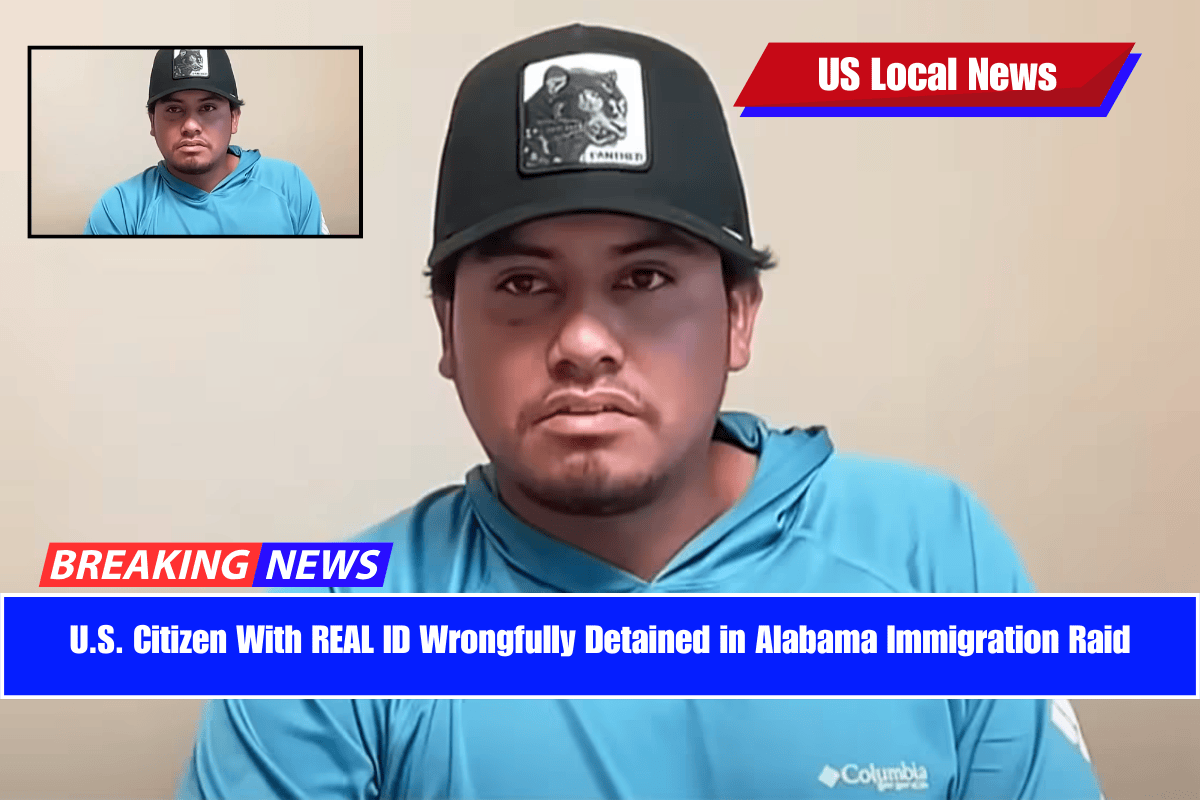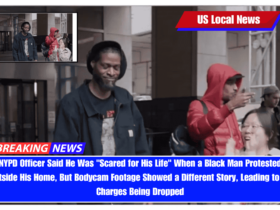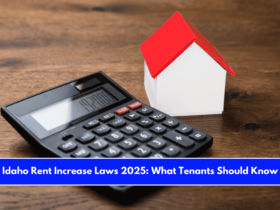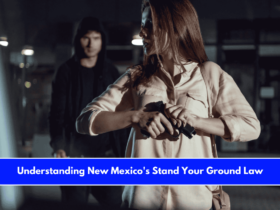A 25-year-old U.S. citizen, Leonardo Garcia Venegas, was detained, handcuffed, and wrestled to the ground during an immigration raid at a job site in Foley, Alabama—despite having a valid REAL ID on him.
The incident, caught on video, has sparked outrage and concern within the Hispanic community, raising serious questions about racial profiling, discrimination, and the rights of U.S. citizens during immigration operations.
What Happened in Foley, Alabama?
On Wednesday, Garcia was working at a job site when immigration authorities conducted a raid. According to a Noticias Telemundo video, officers grabbed Garcia and forced him to the ground, ignoring someone off-camera shouting, “He’s a citizen!”
Garcia had his REAL ID on him—an official form of identification required by federal law for flying and entering federal buildings. Despite this, officers allegedly dismissed the ID as fake and placed him in handcuffs.
Garcia later told reporters, “They grabbed me real bad,” and described how the handcuffs caused visible marks on his wrists and pain in his knees from being forced to the ground.
Garcia’s Citizenship and Release
Garcia was born in Florida and is a natural-born U.S. citizen. He was released from the detention vehicle only after giving officers his Social Security number, which proved his legal status.
His cousin, Shelah Venegas, told reporters the officers ignored the ID simply because “his English isn’t fluent and/or because he’s brown.” She added, “We all made sure we had REAL IDs. Apparently, that’s not enough anymore.”
Family Ties and Emotional Impact
Adding to the emotional toll, Garcia’s brother was also arrested during the same raid. Unlike Garcia, his brother is undocumented, and the family has since agreed to sign deportation papers to avoid months of detention.
Venegas said the incident has left Garcia shaken and in pain, both physically and emotionally. “He was sore when he got back. His wrists were marked, and his knees hurt from how they put him on the ground,” she said.
DHS Response vs. Family’s Statement
The Department of Homeland Security (DHS) defended the arrest. A spokesperson claimed Garcia interfered with an arrest by standing between agents and their target and refusing to follow commands.
Garcia strongly denies this, saying he was only trying to use his phone, which an officer allegedly grabbed and threw to the ground before detaining him.
The DHS statement did not address why his REAL ID was ignored.
Fear and Fallout in the Hispanic Community
The incident has triggered a wave of fear, even among Hispanic U.S. citizens in Alabama. Venegas, whose family owns a construction business, said many workers are now too scared to return to job sites.
“It’s not about being legal or not anymore. It’s about race. We’re treated differently just because of how we look.”
She added that her family pays taxes and contributes to society just like any other citizen, yet lives in fear of being targeted.
“We’re afraid. Even though a lot of us are citizens, we still fear being harassed or attacked just like my cousin.”
Legal Questions Remain
The family is now seeking legal help, but local lawyers have told them it’s nearly impossible to sue federal agents.
The incident raises tough questions:
- Can U.S. citizens be wrongly detained during immigration raids?
- What happens when valid ID is ignored?
- How do race and language affect who gets treated as “American”?
The case of Leonardo Garcia Venegas has become a symbol of a deeper issue—racial profiling and the erosion of trust in law enforcement during immigration operations. Despite having a valid REAL ID and being born in the U.S., Garcia was detained, injured, and only released after providing his Social Security number.
For many in the Hispanic community, this is not just about immigration laws, but about fairness, dignity, and being seen as equal citizens. As public reaction grows, the hope is for better accountability, transparency, and respect for individual rights, no matter the color of one’s skin.











Leave a Reply